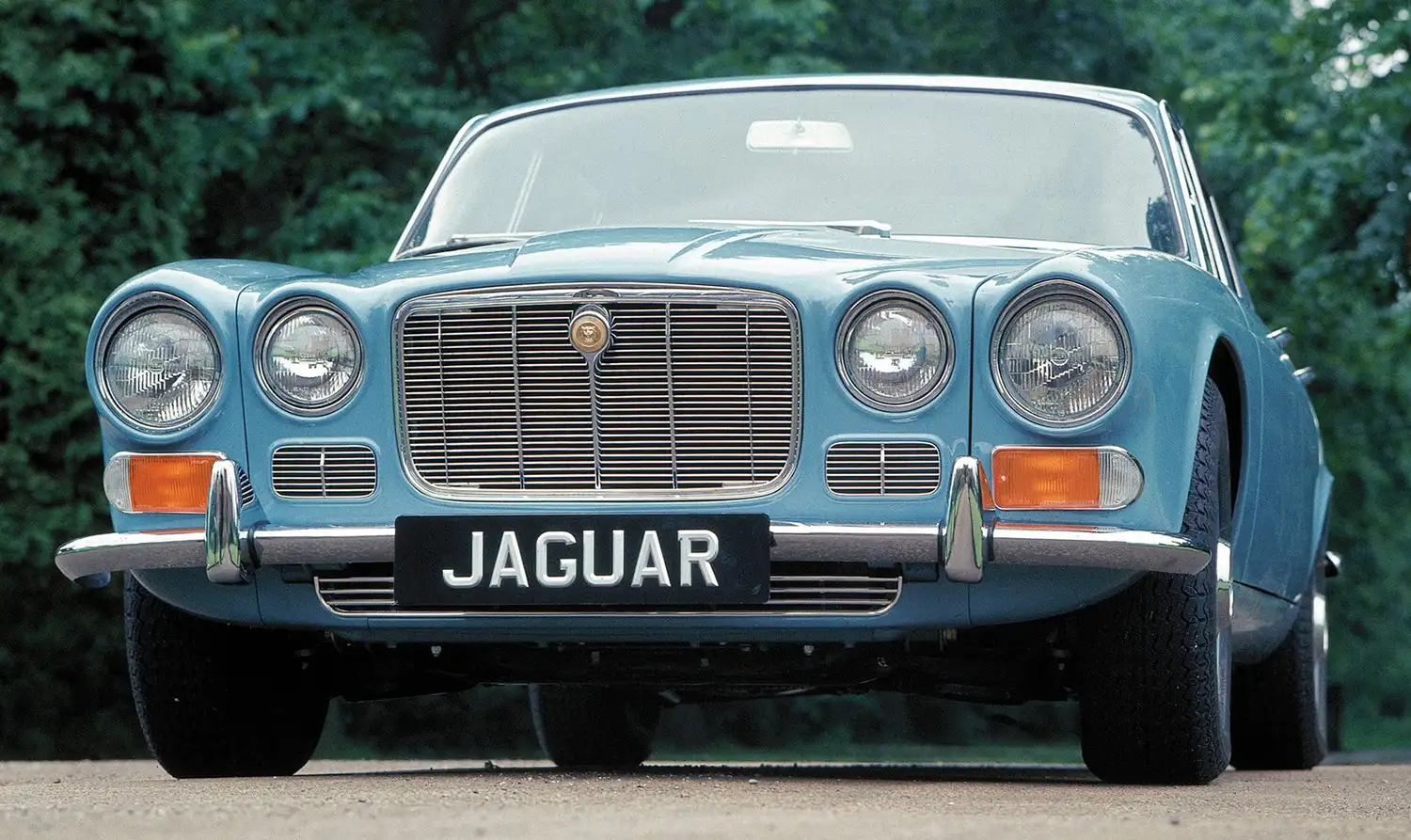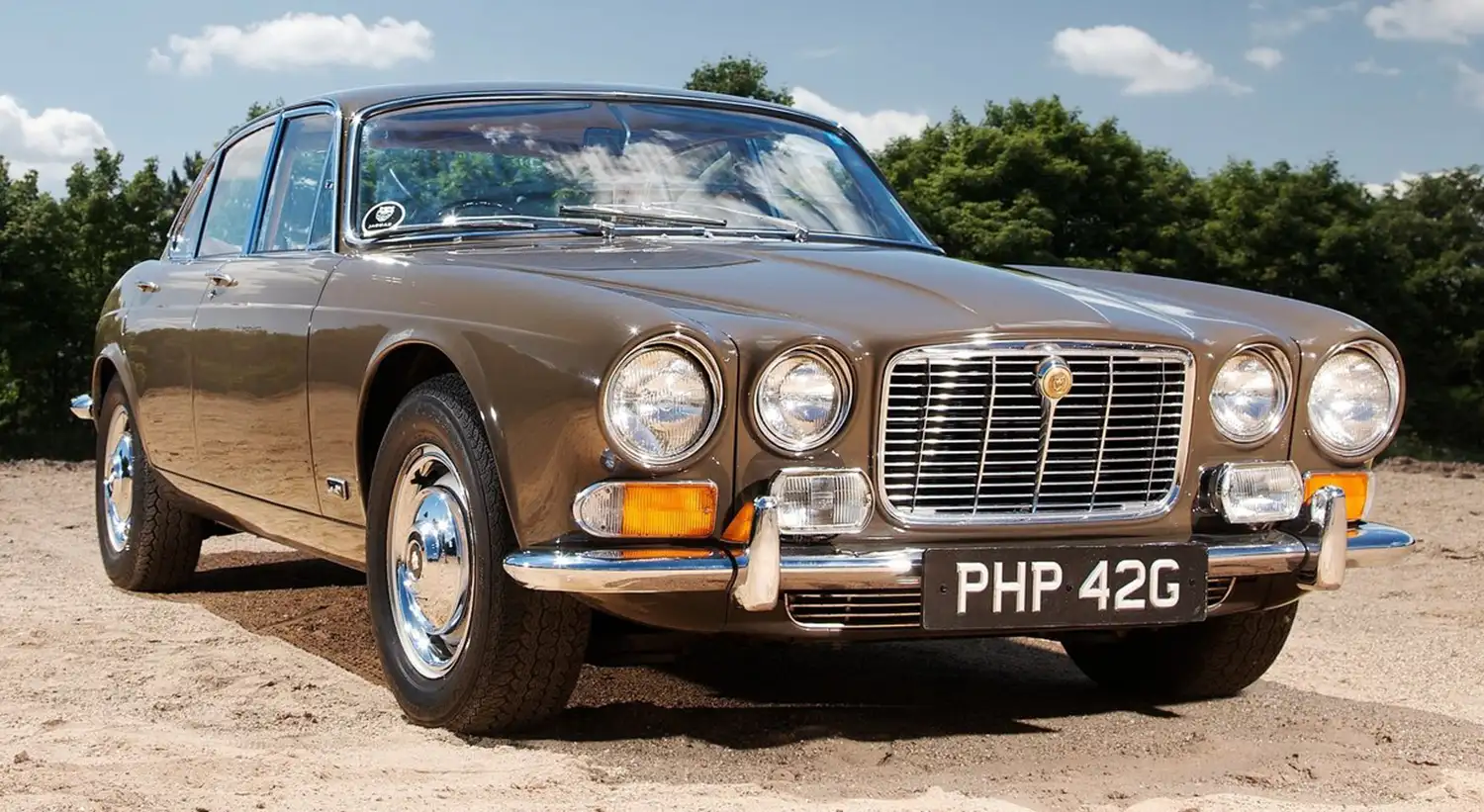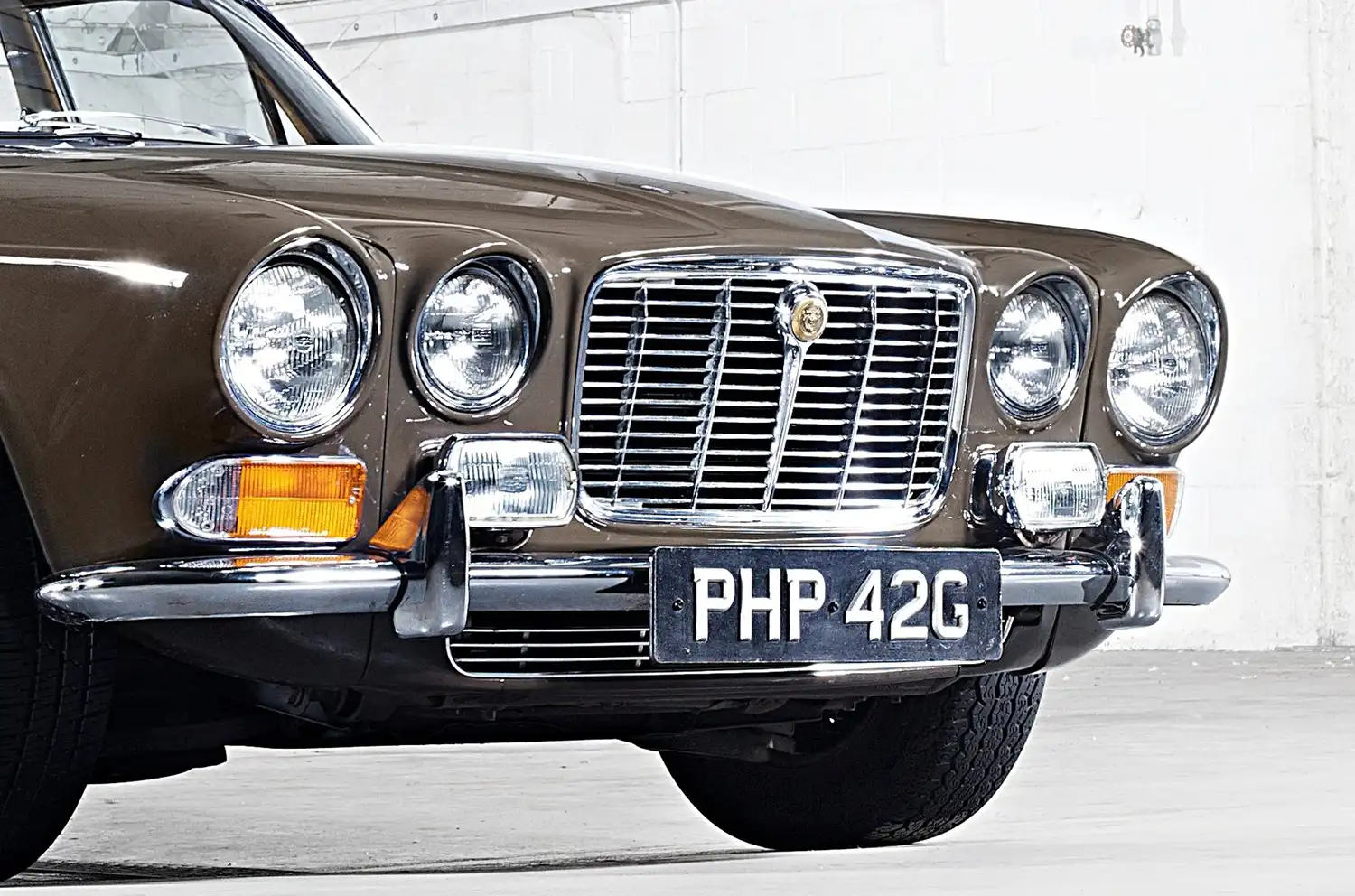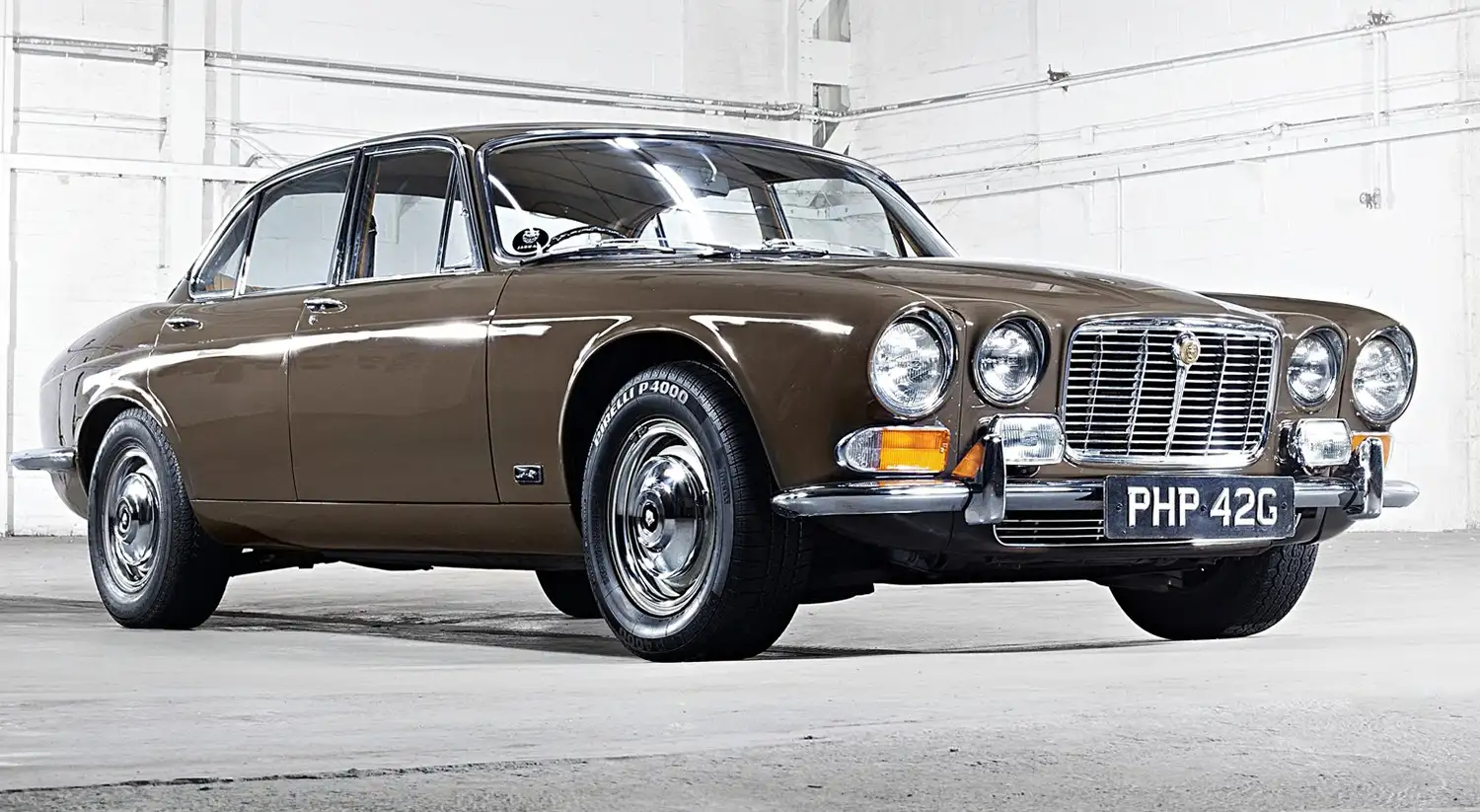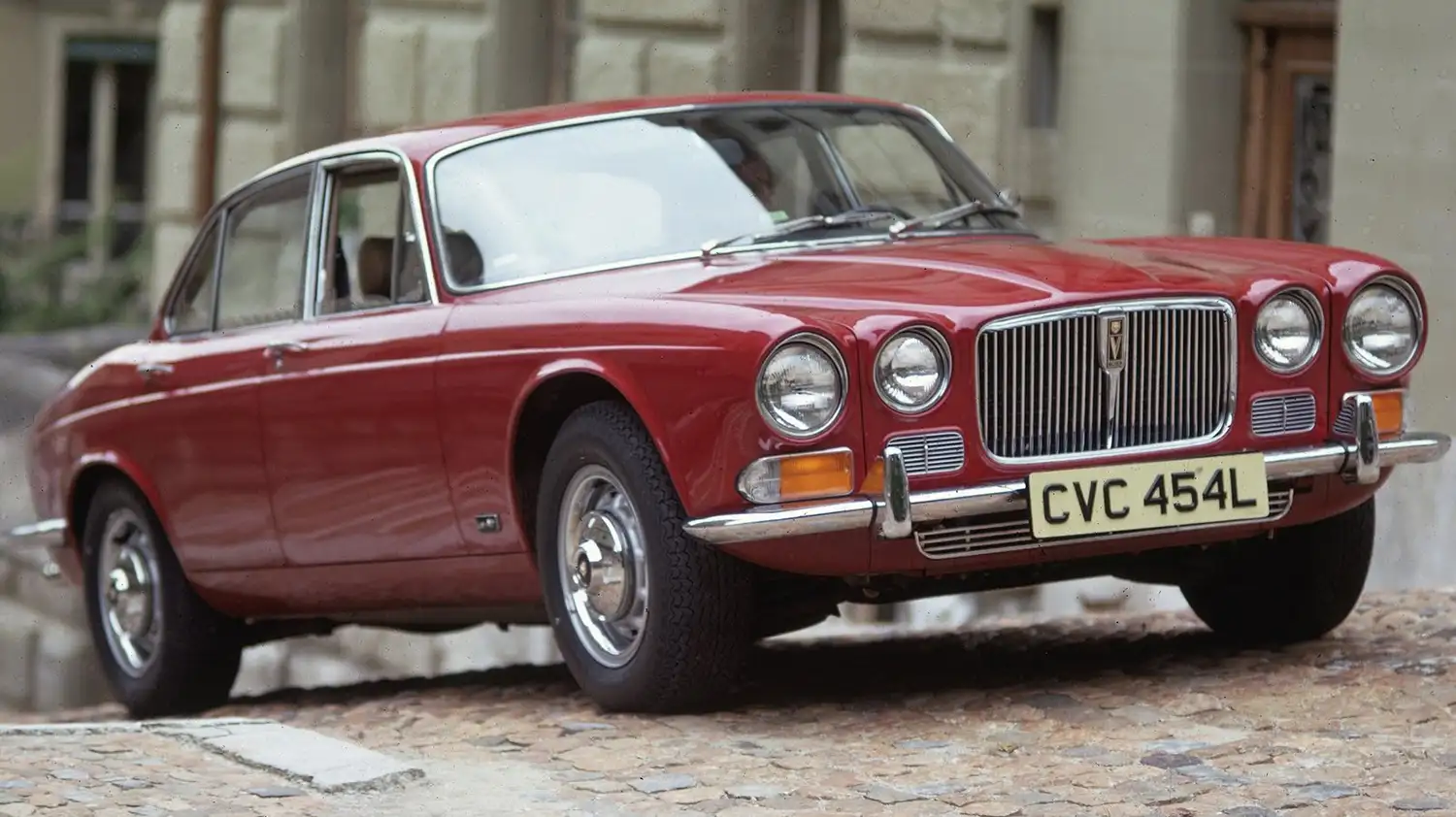
The Jaguar XJ6, using 2.8 litre (2790 cc/170 in³) and 4.2 litre (4235 cc/258 in³) straight-six cylinder versions of Jaguar’s renowned XK engine, replaced most of Jaguar’s saloons – which, in the 1960s, had expanded to four separate ranges. Apart from the engines, the other main component carried over from previous models was the widest version of Jaguar’s IRS unit from the Mark X.
An upmarket version was marketed under the Daimler brand and called the Daimler Sovereign, continuing the name from the Daimler version of the Jaguar 420.
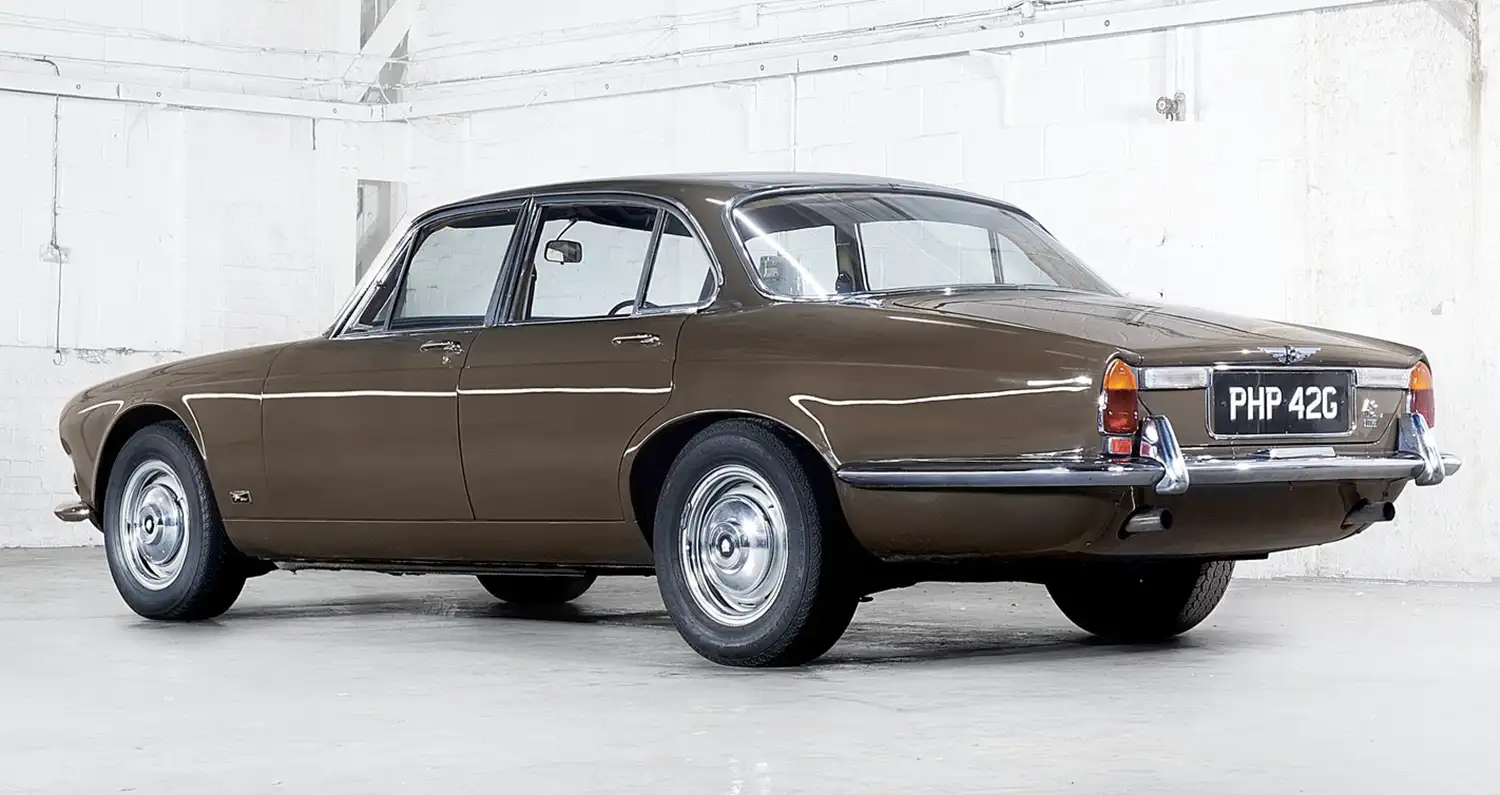
The car was introduced in September 1968. Power assisted steering and leather upholstery were standard on the 2.8 L ‘De Luxe’ and 4.2 L models and air conditioning was offered as an optional extra on the 4.2 L. Daimler versions were launched in October 1969, in a series of television advertisements featuring Sir William. In these spots, he referred to the car as “the finest Jaguar ever”. An unusual feature, inherited from the Jaguar Mark X, was the provision of twin fuel tanks, positioned on each side of the boot / trunk, and filled using two separately lockable filler caps: one on the top of each wing above the rear wheel arches.
In March 1970 it was announced that the Borg-Warner Model 8 automatic transmission which the Jaguar XJ6 had featured since 1968 would be replaced on the 4.2 litre engined Jaguar XJ6 with a Borg-Warner Model 12 unit. The new transmission now had three different forward positions accessed via the selector lever, which effectively enabled performance oriented drivers to hold lower ratios at higher revs in order to achieve better acceleration. “Greatly improved shift quality” was also claimed for the new system.
In 1972 the option of a long wheel base version, providing a modest increase in leg room for passengers in the back, became available.
